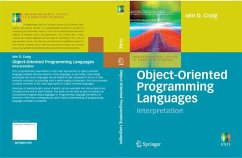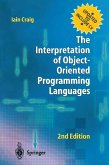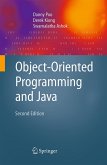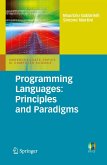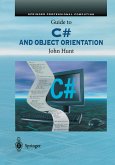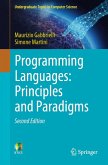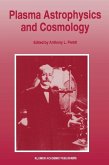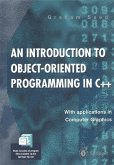Exercises of varying length, some of which can be extended into mini-projects are included at the end of each chapter. This book can be used as part of courses on Comparative Programming Languages or Programming Language Semantics at Second or Third Year Undergraduate Level. Some understanding of programming language concepts is required.
Dieser Download kann aus rechtlichen Gründen nur mit Rechnungsadresse in A, B, BG, CY, CZ, D, DK, EW, E, FIN, F, GR, HR, H, IRL, I, LT, L, LR, M, NL, PL, P, R, S, SLO, SK ausgeliefert werden.
Hinweis: Dieser Artikel kann nur an eine deutsche Lieferadresse ausgeliefert werden.
"There are a lot of books concerning object-oriented programming or object-oriented languages, but only a very small number of them compare object-oriented languages or treat their characteristics in common. The author's textbook belongs to them. The book focuses on the concepts of inheritance, encapsulation, polymorphism and their interactions in object-oriented languages. ... The book can be used for second or third year undergraduate courses." (G. Riedewald, Zentralblatt MATH, Vol. 1128 (6), 2008)

